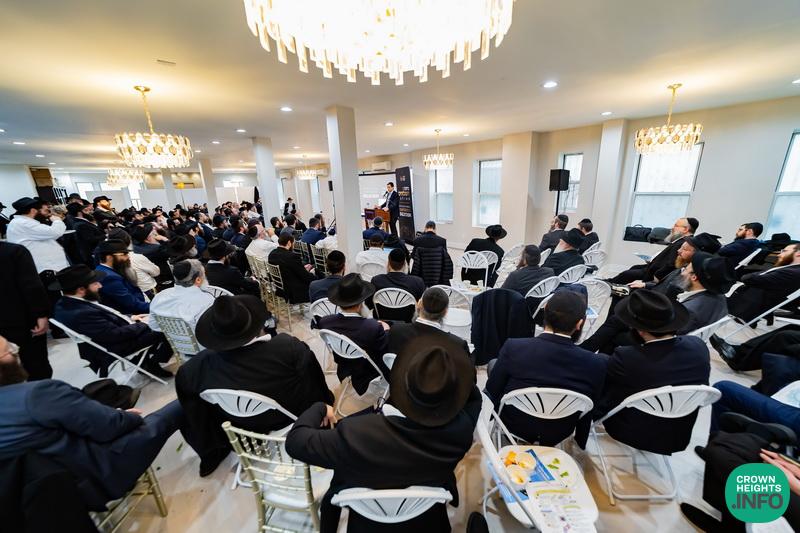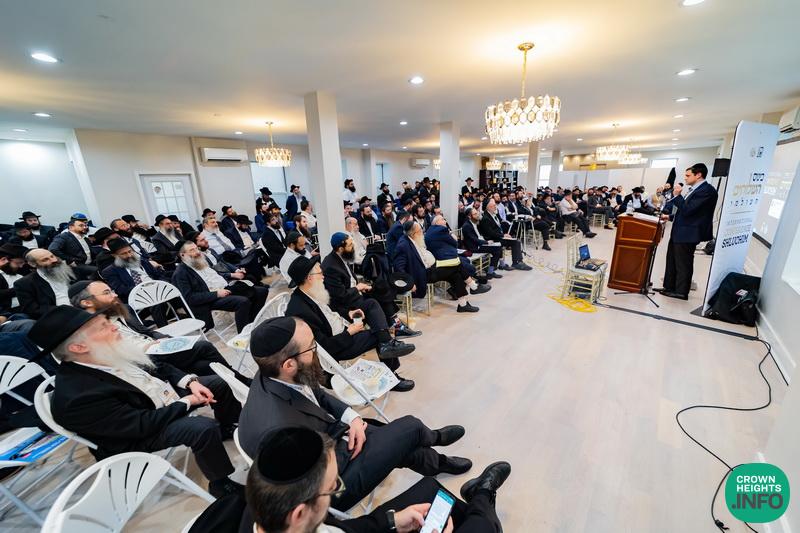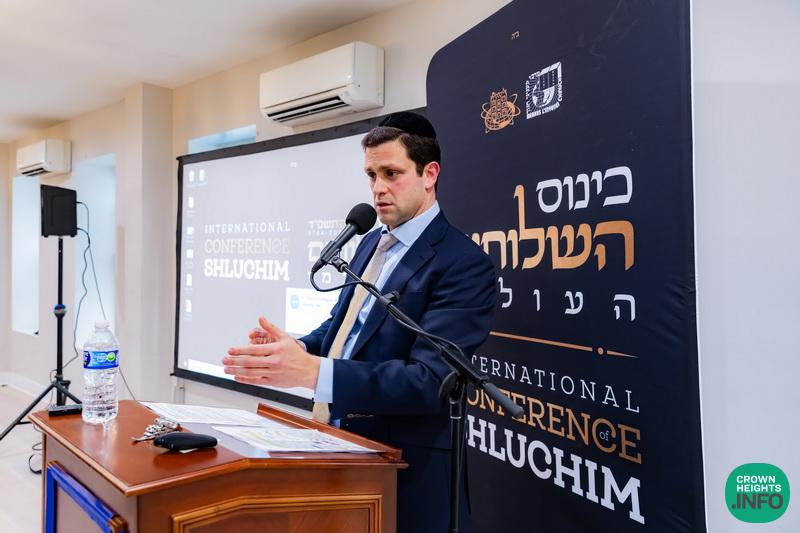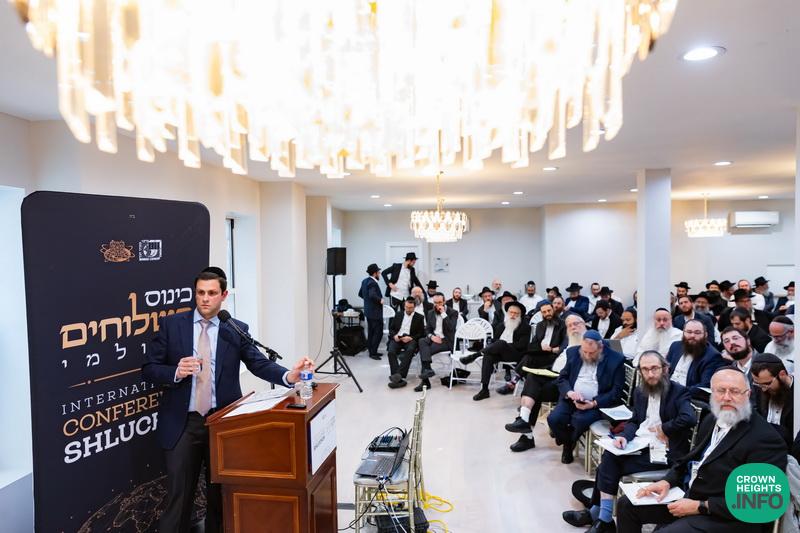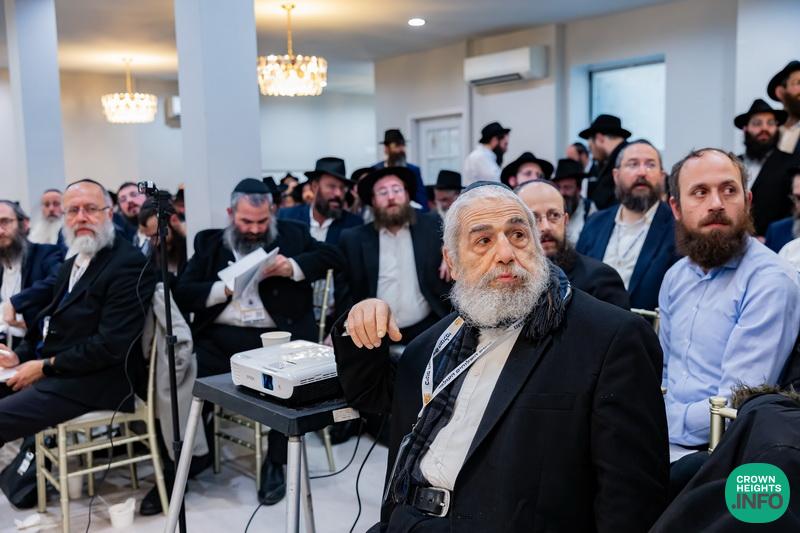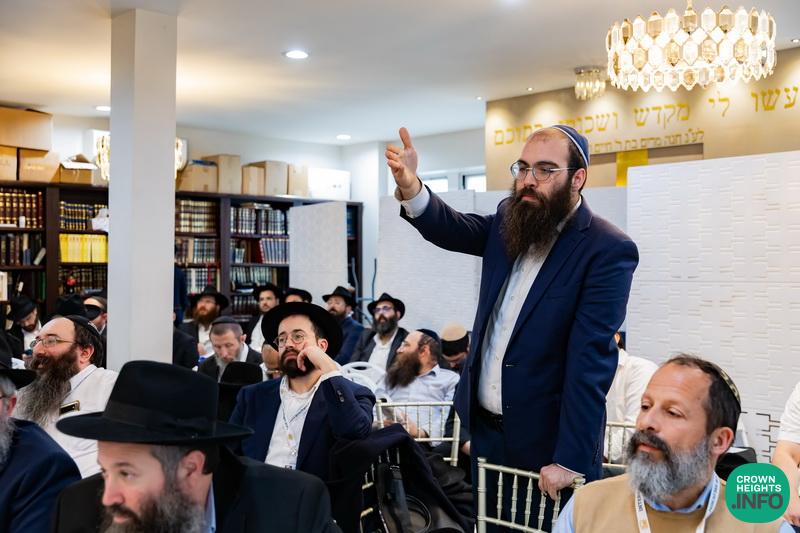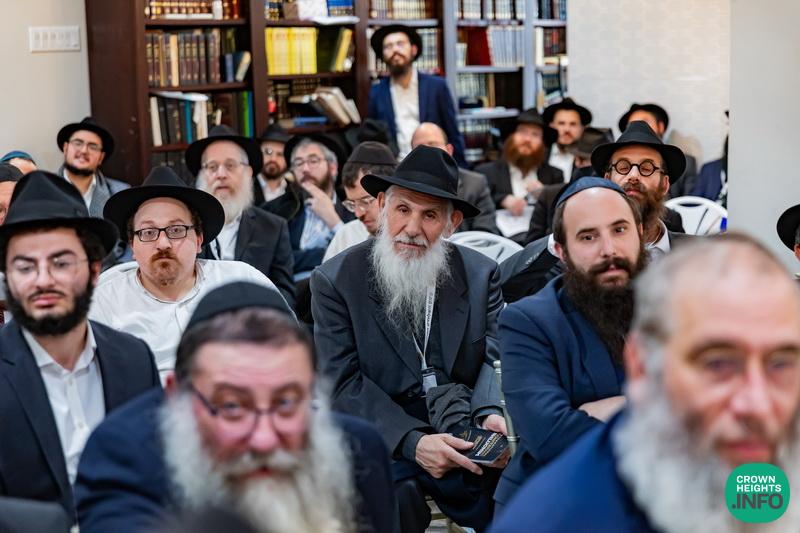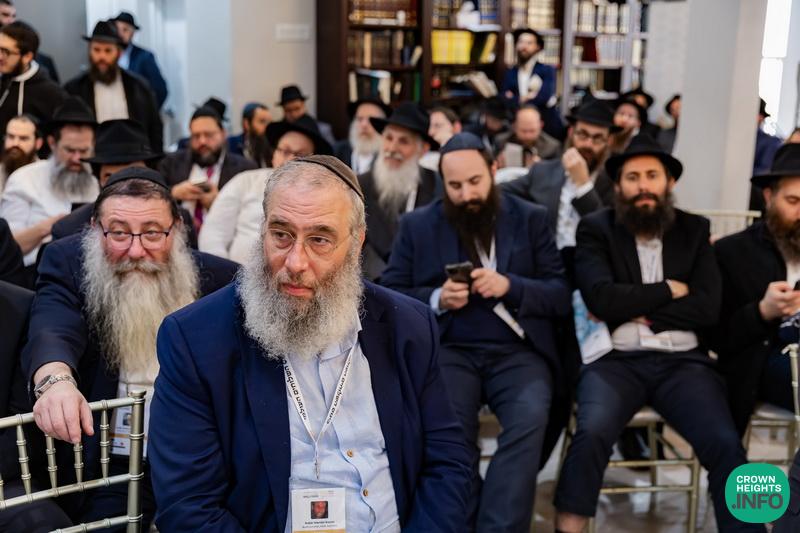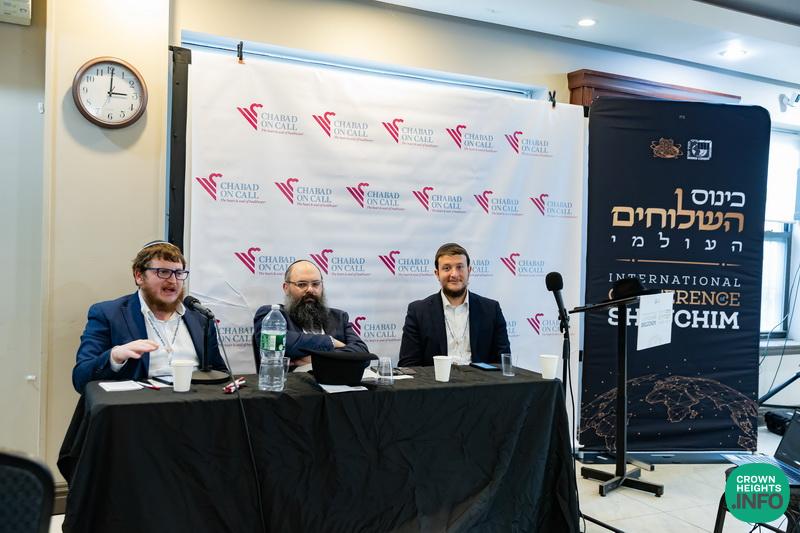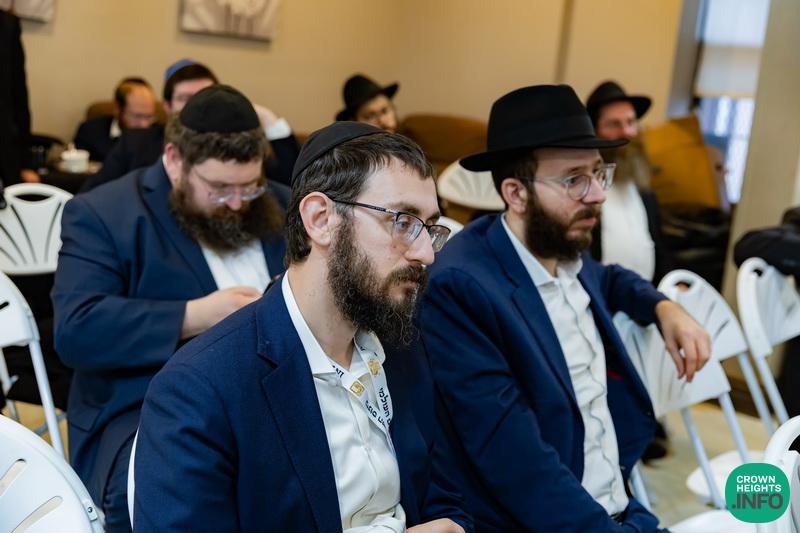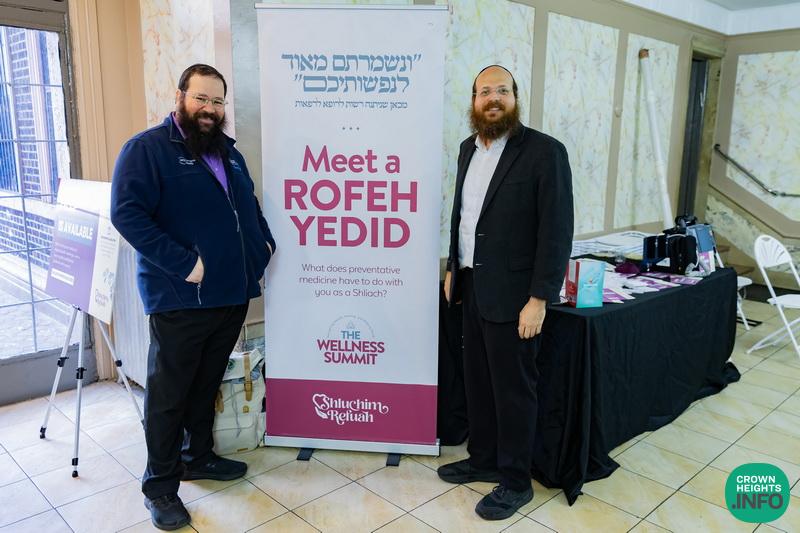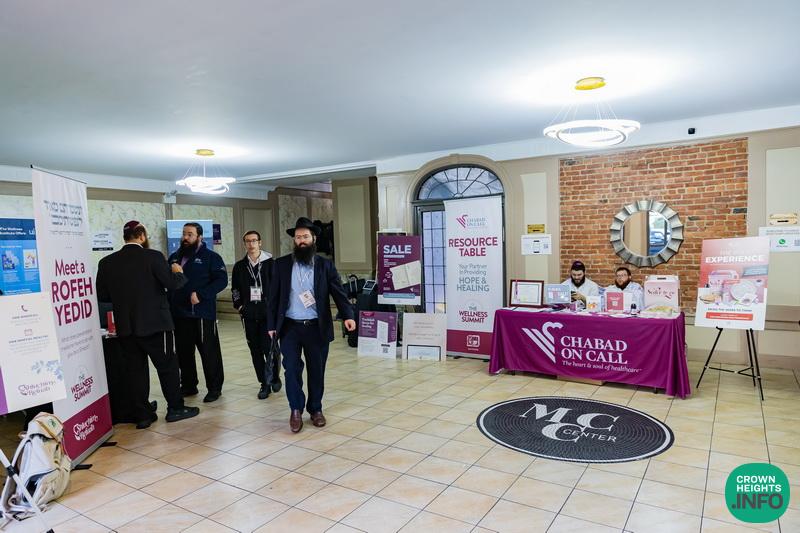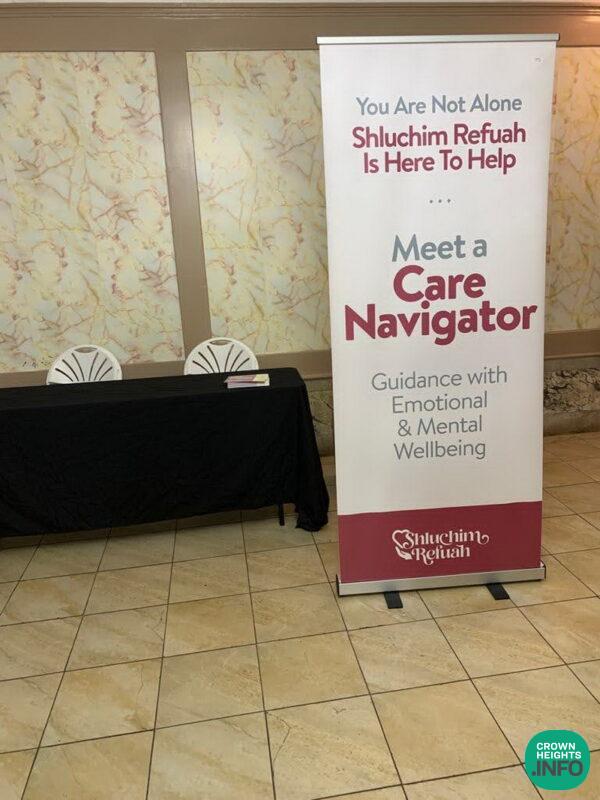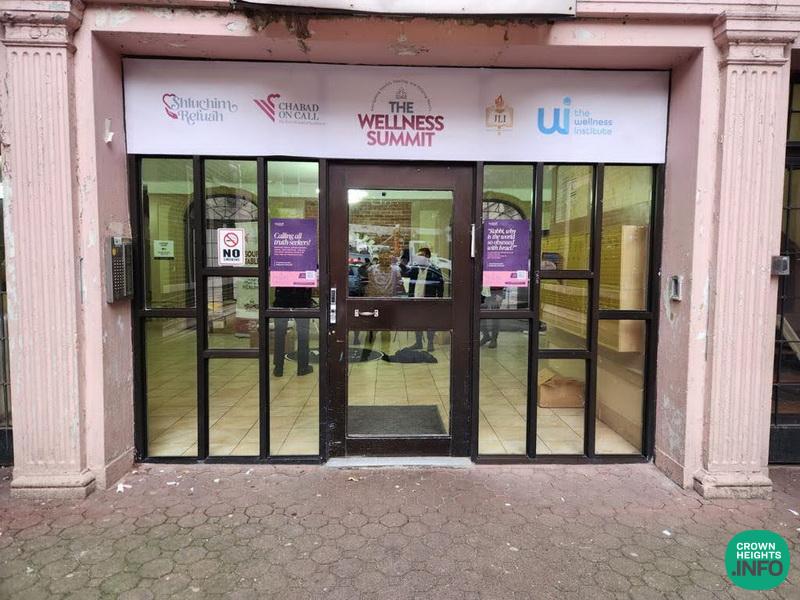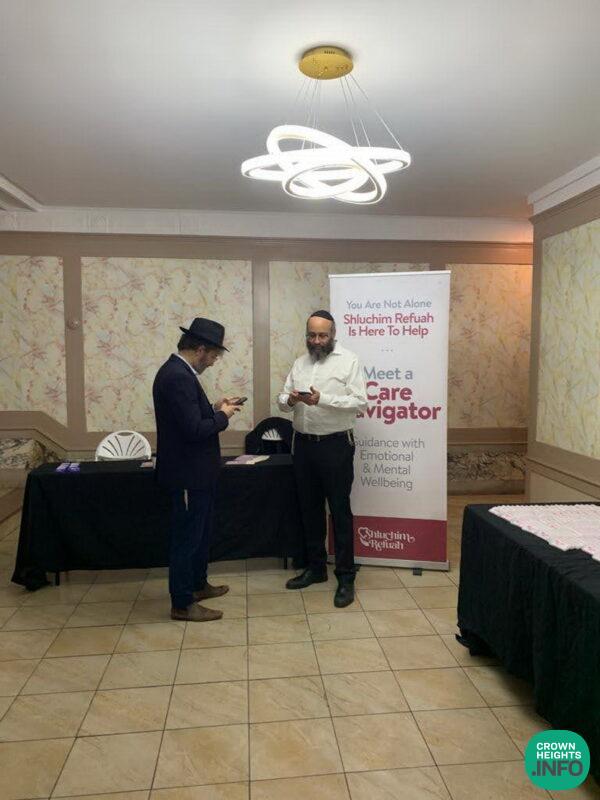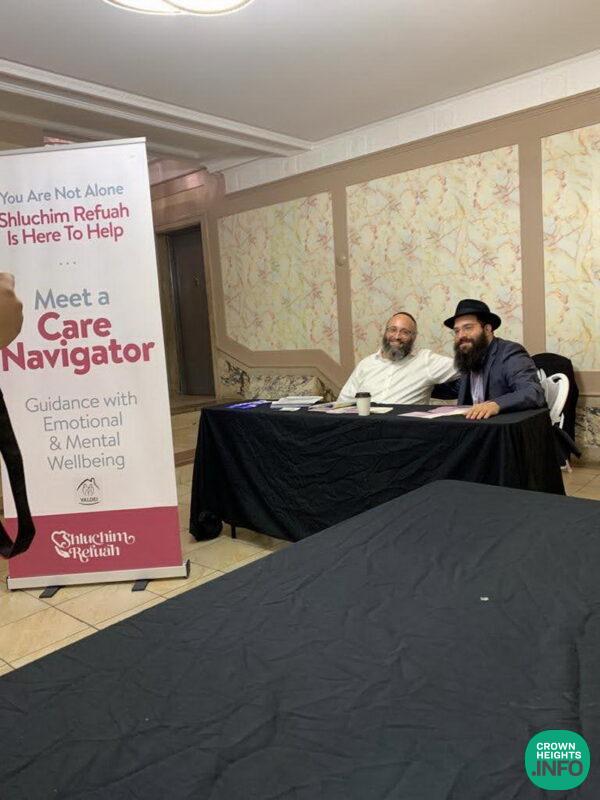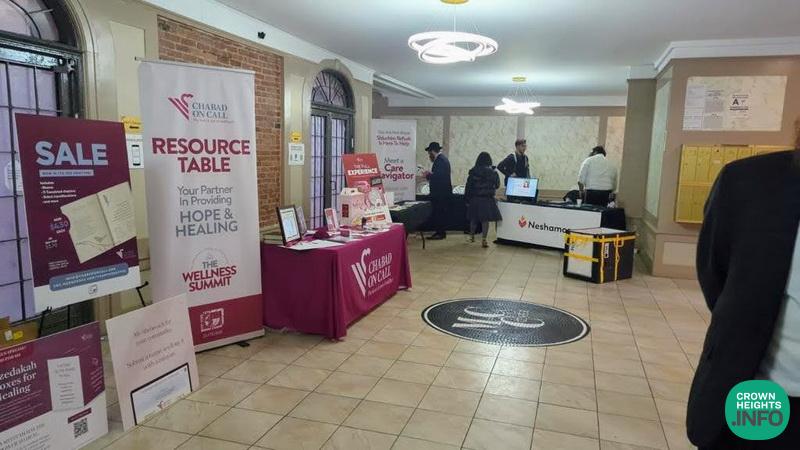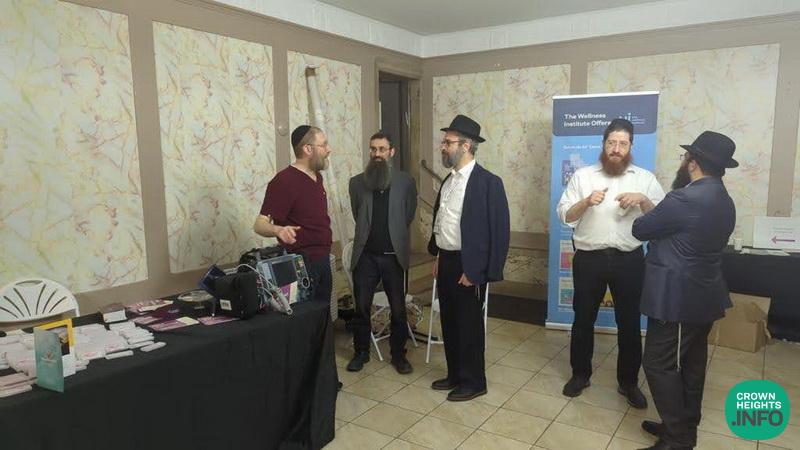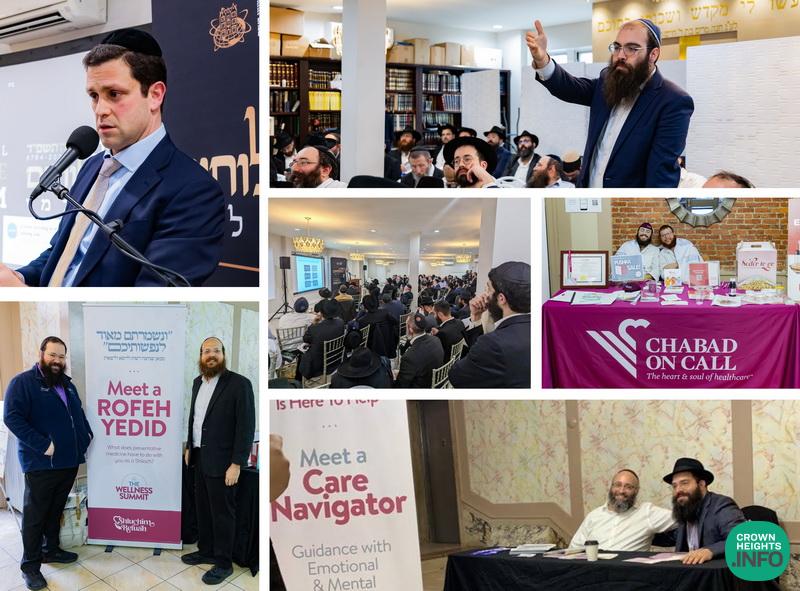
Historic Wellness Summit at Kinus Well-Received Among Shluchim on Front Lines of Mental and Spiritual Care
It was as helpful as it was historic. For the first time ever, the International Kinus Hashluchim featured a full-day, dedicated educational forum focusing on various physical and mental health-related matters. As the reality of mental health challenges has proliferated in recent years, thrusting shluchim on the front lines of care and guidance, the need for professional training and exposure to resources has become ever more apparent.
To that end, the Vaad Hakinus, together with Chabad on Call at Merkos 302 and The Wellness Institute from the Rohr Jewish Learning Institute, created a wellness summit for Shluchim to participate in at the Kinus. The Summit included a brand-new four-part training session for shluchim, timely lectures and a “Health Expo” throughout the day to provide shluchim with the necessary resources and available options for their critical work as spiritual and physical caretakers of their respective communities.
After introductory remarks from The Wellness Institute’s Rabbi Zalman Abraham, Dr. Casey Skvorc, PhD, JD, National Institute of Health, Professor at the American Public University System and the American Military University spoke effusively of his relationships with various shluchim throughout the world, specifically Rabbi Sholom Raichik of Chabad of Upper Montgomery County, Maryland and how much they are faced with those struggling with mental and emotional challenges.
Dr. Shloimie Zimmerman, Psy.D., clinical psychologist and author of “From Boys to Men,” spoke candidly to the shluchim, citing various personal stories as well as encounters with the Rebbe to impress upon the audience just how much they are able to empower and help others. “The word yedid, friend, is a conjugate of yad yad—extending a hand. One of the most important things a shliach can do is simply be a true friend—something that isn’t so simple at all.” Concluding with a poignant story about how anyone who’s looking out for it and truly cares can literally save a life, shluchim walked away with a real sense of clarity and empowerment to continue their essential work.
Dr. Zimmerman led another session of questions and answers about what to look out for while often serving as a first responder to trauma and strife, along with other sessions by skilled presenters like Dr. David Forbes – Melbourne, Australia – Chair, International Society for Traumatic Stress Studies who spoke extensively about resilience building and helping people become more aware of their own ability to withstand stressful incidents in life. Dr. David H. Rosmarin – Boston, MA – PhD, Associate Professor at Harvard Medical School, and Founder of Center for Anxiety drew from his extensive career researching the intersection of religion, spirituality and mental health, impressing upon shluchim just how critical their roles in people’s lives can be towards bolstering their mental health and overall happiness.
As part of Chabad on Call’s mission to serve those in medical care, other sessions devoted to such topics as navigating end-of-life challenges and its accompanying halachic intricacies were led by Rabbi Menachem Horowitz – Brooklyn, NY – Rov of Machon Chaim Aruchim.
Continuing on the theme of providing for those under medical care, Rabbi Lazer Hershkovich – Park Ridge, IL, Rabbi Menachem Stern – Melbourne, Australia, Rabbi Mendy Mentz – Bel Aire, CA presented a workshop on how to build a volunteer network and the positive impact it has on a community, both the people receiving the aid, as well as the volunteers themselves.
The summit concluded with a passionate presentation from Rabbi Mendel Kaplan on the topic of Communicating With Heart. With wisdom and empathy, Rabbi Kaplan shared advice on being present and listening with true heart, as well as communicating more effectively, especially with those coping with difficult situations.
Throughout the day, various smaller booths and other such presentations were scattered around the facility, providing shluchim with resources for their efforts to be frontline responders to those in need.
“Being confronted with serious and sometimes life-threatening situations can be very daunting. For Shluchim, this can happen on a daily basis,” said Rabbi Moshe Kotlarsky, Chairman of the International Kinus Hashluchim and Vice Chairman of Merkos L’inyonei Chinuch. “As the natural first address for so many in distress, shluchim are eager to learn how to assist in such situations. We are delighted to be able to bring the best voices in the field directly to the shluchim and help them in this critical corner of their shlichus.”For more information regarding Merkos 302’s efforts in empowering Shluchim to navigate today’s challenges of Emotional Well-being, visit https://www.shluchimrefuah.org/
Photos: Chaim Tuitto – Kinus.com
